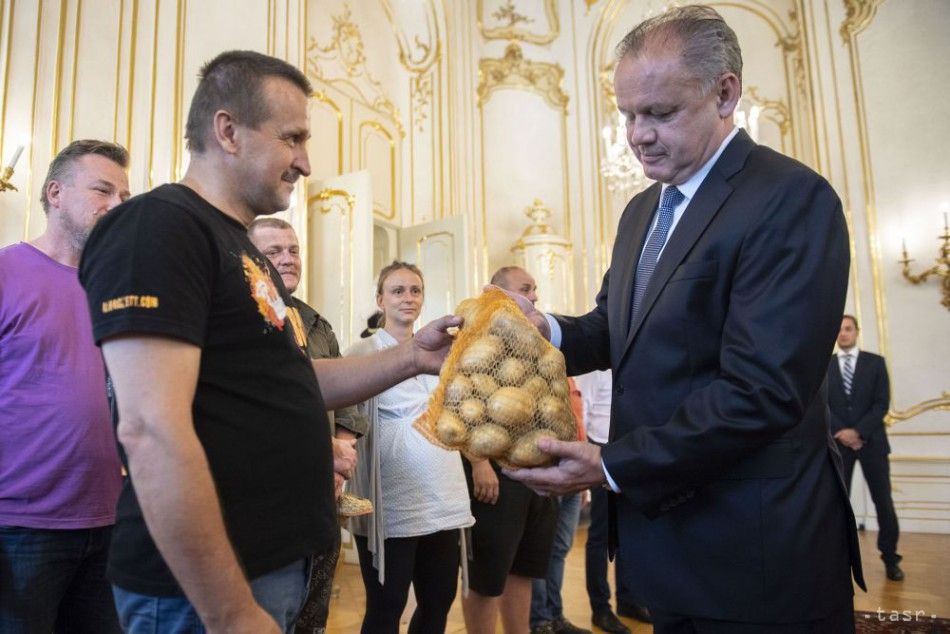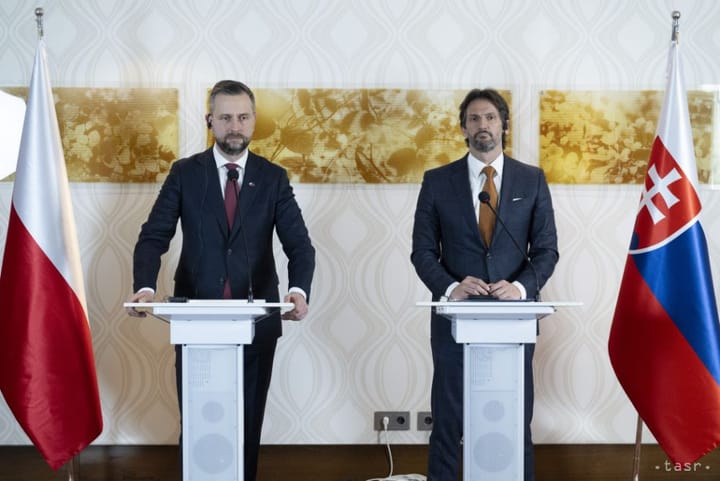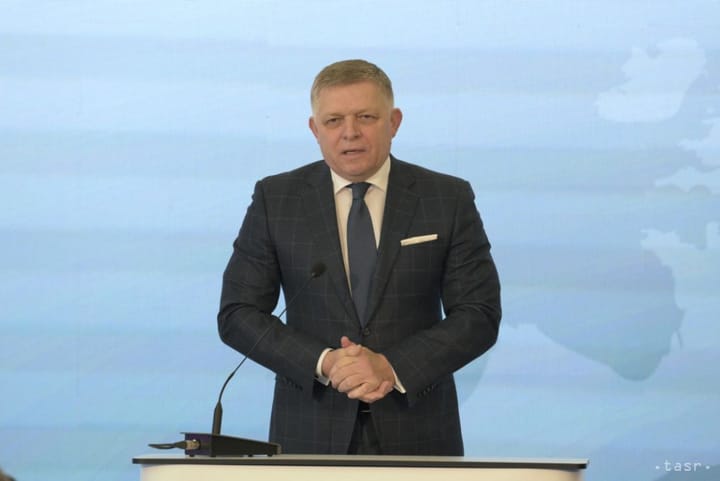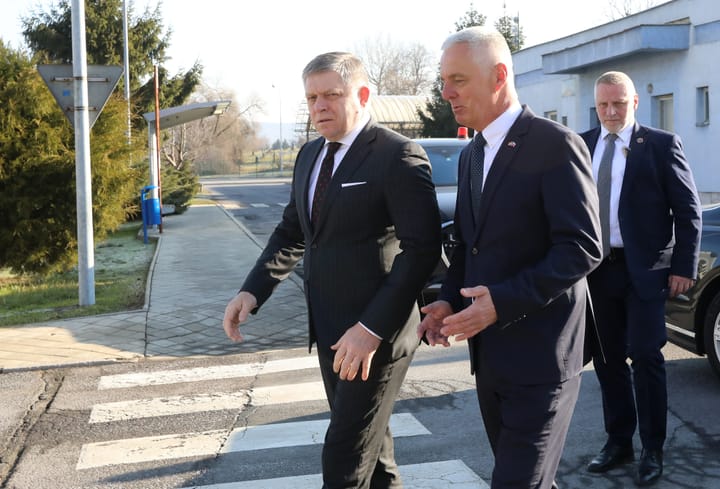Kiska: Time for Government to Address Farmers' Demands

Bratislava, June 20 (TASR) – It’s high time that the Government started honestly and sensitively addressing the demands and problems of Slovak farmers, stated President Andrej Kiska on Wednesday after meeting a group of dissatisfied farmers that have organised a protest tractor ride from Michalovce (Kosice region) to Bratislava and have now parked their tractors by the Danube river in the capital, determined to remain there until their demands are met.
Kiska described the situation in the agricultural sector as serious and called on the authorities concerned to start addressing unclear legal relations concerning the ownership and use of land as well as the issue of agriculture subsidies.
The president further drew attention to a statement by Prosecutor-General Jaromir Ciznar, who said that the state has been failing to enforce the law. “We need to restore the rule of law in the countryside,” he stressed, adding that subsidies must be given to those who really want to employ people in the countryside. Kiska pointed out that agriculture employs only slightly over 2 percent of people in Slovakia, while the EU’s average stands at 5 percent.
Farmer Frantisek Oravec from eastern Slovakia, who represented the dissatisfied farmers at the meeting, said that for two-and-a-half years farmers have been trying to explain to the Agriculture Ministry and the Agricultural Payment Agency (PPA) that the current system in terms of ownership of land is outdated. “It’s unthinkable for Slovakia and PPA to accept some historical right of land use that has no support in law. It’s unthinkable that there’s neither a local authority nor a state body to monitor legal (property) titles to land,” said Oravec, pointing to shady payments for land.
Kiska promised to monitor the situation in the agriculture sector.
The dissatisfied farmers have claimed that Slovak legislation puts “bigger players” in the right instead of protecting small farmers. They claim to be pursued by “stronger interest groups” that cultivate the land of foreign owners and are protected by people from political circles. They’ve faced intimidation, blackmail and violence as well as the machinations of a legal mafia against which the local and state authorities are “inactive”.



